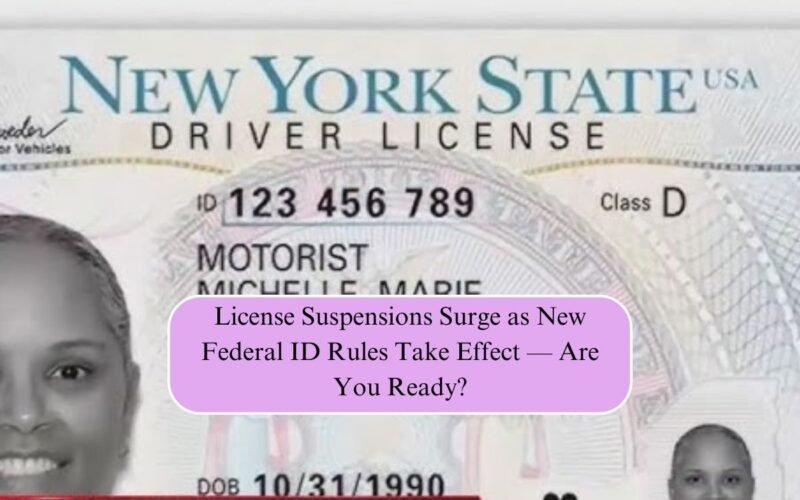Starting this month, new federal ID rules are taking effect that are causing a surge in driver’s license suspensions across the United States. The changes, which aim to enforce stricter identification standards under the REAL ID Act, mean that millions of drivers could face restrictions if their licenses do not comply with updated federal requirements.
Why License Suspensions Are Increasing
The Department of Motor Vehicles (DMV) and the Social Security Administration (SSA) have reported that drivers with outdated documentation, expired licenses, or non-compliant IDs are at risk of suspension. The federal regulations now require licenses to meet enhanced security standards, including proof of citizenship or lawful presence, Social Security verification, and updated residential documentation.
Many states have begun flagging non-compliant licenses, prompting notices to drivers and, in some cases, automatic suspension of federal privileges such as air travel and access to government facilities.
Who Is Most at Risk
Certain groups of drivers are particularly affected by the new rules:
- Seniors over 65 who have not updated their licenses in years
- Frequent travelers who rely on their license for airport security and federal identification
- Individuals who recently moved and have outdated proof of residency on file
- Drivers with licenses issued before the full implementation of REAL ID standards
Failing to update licenses before the federal enforcement date can result in loss of privileges, including being unable to board commercial flights or enter federal buildings.
How to Ensure Your License Remains Valid
Drivers should take the following steps to avoid suspension:
- Check your current license to confirm whether it is REAL ID-compliant.
- Gather required documents, including proof of citizenship, Social Security number, and two proofs of residence.
- Schedule an appointment with your local DMV to renew or upgrade your license.
- Verify your updated status in your state DMV system to ensure federal compliance.
Taking action promptly is critical, as DMV offices are experiencing higher demand due to the nationwide push for compliance.
What Drivers Should Know About Enforcement
While suspensions related to federal ID compliance do not typically prevent driving within your state, they can affect:
- Domestic air travel
- Access to federal buildings and certain government services
- State-issued permits that require federal verification
It is important to treat non-compliance seriously, as delays in updating your license could result in inconveniences or penalties.
FAQs
1. Why are license suspensions rising now?
The increase is due to the enforcement of federal ID rules under the REAL ID Act, which requires stricter verification for driver’s licenses and identification cards.
2. Who is affected by these new rules?
Drivers with expired or non-compliant licenses, seniors, frequent travelers, and anyone who has not updated their documentation may be affected.
3. What documents are required for compliance?
Drivers need proof of U.S. citizenship or lawful presence, a Social Security number, and two proofs of current residential address.
4. Will this affect my ability to drive locally?
Typically, non-compliance does not prevent you from driving within your state, but it does affect federal privileges such as boarding planes or entering federal buildings.
5. How can I avoid license suspension?
Schedule a DMV appointment to renew or upgrade your license, submit all required documentation, and confirm your status in the DMV system.

